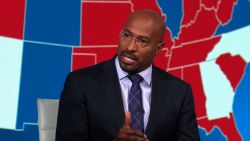Whether President Donald Trump ultimately wins or loses a second term, Tuesday’s election proved something beyond the shadow of a doubt: He has broken modern politics. Or, to put a finer point on it: Trump has exposed the way we poll, analyze and predict election outcomes.
Heading into Election Day, every shred of available evidence suggested that Trump was likely to lose, and lose convincingly, to former Vice President Joe Biden. The incumbent trailed by high single-digits in national polling. He was behind in polling averages in virtually every swing state. He was being drastically outspent on television in the vast majority of battlegrounds. Professional campaign handicappers were unanimous: This election was likely to border on landslide territory for Biden.
And yet, that’s not what happened. While you’d almost certainly rather be Biden than Trump at this point when you look at where votes remain to be counted in critical swing states like Wisconsin, Michigan and Pennsylvania, it’s clear that the incumbent, if he loses, will not be swept out of office in a clear rebuke of his first four years in office.
America votes: What you need to know
Trump’s overperformance of his poll numbers almost everywhere – not to mention the likelihood that Republicans maintain control of the Senate and gain seats in the House (although fall short of winning the majority) – are simply not explainable by the available polling data going into the election. They’re just not.
And this isn’t the first time we’ve seen this happen. In 2016, most polling – not to mention the professional handicapping types – suggested that Hillary Clinton was on her way to a comfortable, if not crushing, victory. That obviously didn’t happen.
One miss is a potential anomaly, a bug in the matrix. Two straight presidential elections in which Trump overperformed pre-election polls and the expectations of the professional political class – and his party did the same down-ballot – proves that there are systemic issue with the way we poll and cover elections.
What are the problems?
Polling seems to have proven inadequate in accurately reflecting the Trump coalition. Whether that is a function of the so-called “shy Trump voter” phenomenon or some other more technical issue about how samples are put together – and how well they reflect the actual political realities in the country – remains to be seen. But it’s extremely clear that political polling has some very real issues that need to be addressed.
Aside from polling, it’s clear that other traditional metrics used by political prognosticators are also failing (or have already failed). Money raised and spent – particularly on TV ads – in a presidential race may no longer be an indicator of much of anything, for example. Biden drastically outspent Trump (just as Clinton drastically outspent Trump in 2016) and yet the race in both instances was far tighter than the spending numbers would have led you to believe.
It’s possible then that, given the wall-to-wall coverage of the presidential candidates by cable TV and other media outlets and the massive fundraising by both parties, money differentials are simply not predictive of overall outcomes.
Then there is the reliance of political reporters (and politicians, particularly on the Democratic side) on Twitter as both a news source and opinion setter is deeply misguided. While every reporter is quick to tell you how they know Twitter isn’t real life, there’s absolutely no question that they also allow the views expressed on Twitter, which usually lean liberal, and the desire for likes and retweets from the major players on Twitter to seep into their understanding of both the presidential race and the country more broadly.
And that affects the assumptions that are made about the country – and the frames through which the race is covered.
There are obviously other issues, too. What Trump’s two bids for president have shown – again, whether or not he wins a second term when all the votes are counted in the 2020 race – is that there are fundamental flaws in the way presidential elections (at least those involving Trump!) are reported on and analyzed.
Even if Trump loses to Biden today or in the coming days, those problems won’t suddenly disappear.



















